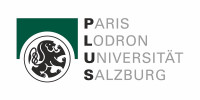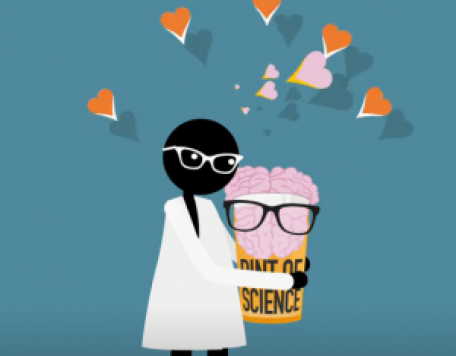© Pint of Science, 2025. Alle Rechte vorbehalten.
Join us on May 20th for an evening exploring the wonders of nature and technology — from the secrets of neural networks and the language of flowers to the meaning of being human in the age of AI.
99 billion neurons walk into a bar: a visual introduction to neural networks
Mihai Bujanca
(Software Engineer at Qualcomm; Ex-Research Scientist at the University of Manchester)
Right now, billions of neurons in your brain are voting—should you stick around for this talk or go out for another pint? This is binary classification in action, and your neurons do it constantly, deciding everything from "is that a cute cat video?" to "should I swipe left?". Join me for a visual (and jargon-free) tour of how artificial neural networks mimic your brain, make predictions, and sometimes mess things up hilariously. We’ll unpack how simple yes-or-no decisions stack up to create surprisingly intelligent systems. So grab your drink, let your neurons vote "stay," and discover how neural networks work under the hood.
Flower scent as pollinator attractant: basic, applied and climate change research
Stefan Dötterl
(Professor, PLUS Department of Environment and Biodiversity)
Most flowering plants are pollinated by animals, and the communication between flowers and their pollinators is an essential first step for pollination to occur in all these plant-insect interactions. Our research aims to decode the communication in mutualistic and parasitic pollination systems across the world, with a focus on floral scent. Recently, we also started to test for climate change effects on the attraction of pollinators to crop plants, and to explore possibilities for using floral scents in sustainable pest control measures in Austria.
The AI Mirror – Being Human in the Age of AI
Marco Leitner
(PhD student, PLUS Department of Public International Law)
On April 10, 2019, scientists presented the world with the first picture of a black hole. This remarkable scientific achievement was made possible by interlinking radio dishes across the globe, creating an Earth-sized sensor. Equipped with sophisticated machine learning algorithms, it was possible to gather and analyze massive amounts of signals millions and billions of lightyears away and to provide the first image of a black hole.
In a similar vein to the earth-sized sensor, more and more areas of humans’ lifeworld are turned into sensors, collecting and analyzing vast amounts of data, providing images of humanity. From smart watches to smart cars to completely smart environments and cities, AI systems create a mirror for humanity. The question is in how far these newly generated mechanical images reflect what humanity is about?
In a similar vein to the earth-sized sensor, more and more areas of humans’ lifeworld are turned into sensors, collecting and analyzing vast amounts of data, providing images of humanity. From smart watches to smart cars to completely smart environments and cities, AI systems create a mirror for humanity. The question is in how far these newly generated mechanical images reflect what humanity is about?
© die Mitwirkenden OpenStreetMap
Weitere Veranstaltungen in NarrenCastl
2025-05-19
Decoding Intelligence: AI, Language, Computational Biology
NarrenCastl
Rudolf-Biebl-Straße 22, 5020 Salzburg, Österreich
2025-05-21
Exploring the Body, the Mind, and the Self
NarrenCastl
Rudolf-Biebl-Straße 22, 5020 Salzburg, Österreich


